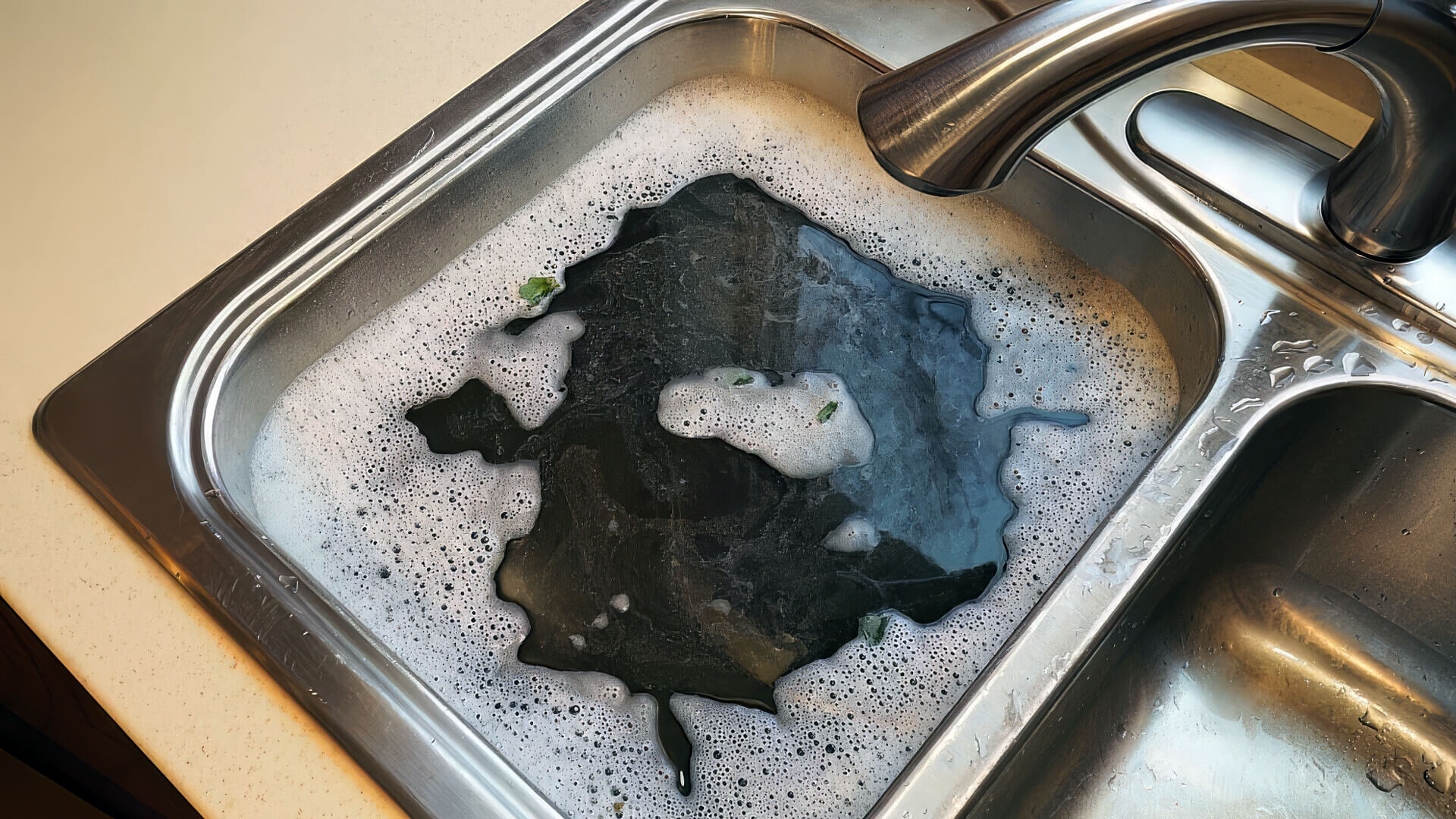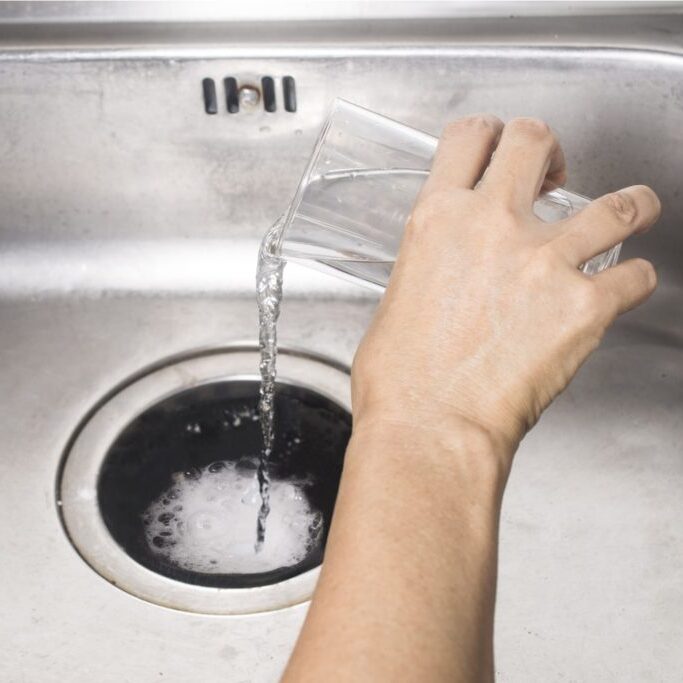Reliable Tips For Resolving A Slow-Draining Sink
Reliable Tips For Resolving A Slow-Draining Sink
Blog Article
How do you actually feel when it comes to 7 Ways To Fix A Slow-Draining Sink Before You Call A Plumber?

Intro
We have actually all existed: You're cleaning your teeth or cleaning your hands, and you discover the water pooling in the sink. Instead of quickly swirling down the drain, it lingers, transforming your once-refreshing morning regimen right into a mini swamp scene. A slow-draining sink isn't simply aggravating; it's frequently a sign of larger plumbing issues lurking underneath the surface. Fortunately is that many slow-draining sinks can be taken care of with a little knowledge, a few standard tools, and some persistence. Ready to tackle this job head-on? Allow's roll up our sleeves and dive right in.
Recognizing the Causes of a Slow-Draining Sink
Prior to you begin poking around in your pipelines, it helps to understand what could be causing the downturn. Recognizing the source makes it easier to choose the ideal solution.
Usual Culprits Behind Slow Drain
So, what's obstructing points up? Generally, it's a mix of daily debris-- believe hair, soap scum, toothpaste residue, and leftover food particles. With time, these little bits collect and cling to the pipe wall surfaces, progressively narrowing the passage and making it harder for water to go through. In some cases, natural resource from tough water can likewise include in the crud, developing the best tornado for persistent obstructions.
When is it Time to Take Action?
If you observe the water draining slower than common, it's an excellent idea to step in earlier as opposed to later. Waiting as well long can result in complete clogs, unpleasant odors, or even pipe damages. If the water takes greater than a few secs to clean out after switching off the faucet, consider it a warning and get ready to put on your DIY hat.
Devices and Products You'll Require
The right devices make all the difference. Thankfully, you won't need a fully equipped plumbing's van to do the job.
Important Devices for DIY Services
A bettor is your best beginning point. A little, sink-sized plunger creates suction that can dislodge minor blockages. For more consistent blockages, a drainpipe serpent (often called a plumbing's auger) works wonders. A set of gloves, a flashlight, and possibly a pair of safety goggles are additionally helpful.
Recommended Cleansing Solutions
Mild dish soap and warm water can help break down oily build-up. A blend of cooking soda and vinegar is a reliable natural remedy, and chemical cleaners use an even more environmentally friendly approach. Maintain chemical drain cleansers as a last resource, as they can be severe on your pipelines.
Safety And Security First: Precautions and Prep work
Before you launch into unclogging mode, think of safety. You're handling possibly dirty water and particles, so slip on a set of gloves. If you're using chemical cleansers, make certain the area is well-ventilated and adhere to the directions on the label.
Protective Gear and Work Area Configuration
Put down some old towels or cloths around the sink location to capture sprinkles. Clear away any things that may enter your method, like soap dispensers or tooth brush holders. See to it you have excellent lighting-- grab a flashlight if required.
Step-by-Step Guide to Dealing With a Slow-Draining Sink
Currently, let's get involved in the nitty-gritty. This detailed process will certainly assist you via easy techniques to recover your sink's drainage.
Action 1: Remove and Tidy the Stopper
Usually, the stopper (that tiny plug you push down to block water) is the very first culprit. Remove it meticulously and clean off any type of hair or gunk caught around its base. Wash it extensively before putting it back in position.
Step 2: Utilize a Bettor to Displace Particles
Got that plunger ready? Placement it over the drainpipe and give it a few firm pumps. The concept is to produce suction that can loosen any kind of clog. If you see bits of debris floating up, you're on the right track.
Step 3: Try a Drainpipe Serpent or Cable Hanger
If the plunger doesn't do the trick, it's time to bring out the drain serpent. Delicately feed it right into the drainpipe and spin as you go. You could really feel some resistance-- that's most likely the blockage. Maintain twisting and pulling till you eliminate the blockage. If you do not have a drain serpent, a straightened wire hanger can work in a pinch.
Step 4: Use a Do It Yourself Drain Cleaner
A natural cleaner made from cooking soft drink and vinegar can break down recurring grime. Put half a mug of cooking soda right into the drainpipe, adhered to by half a mug of vinegar. Allow it fizz for around 15 minutes, after that flush with hot water. This chemical reaction typically does marvels for minor obstructions.
Step 5: Reconstruct and Examine the Sink
Put whatever back together and run the tap. Does the water now swirl down the drain at a respectable rate? If yes, give on your own a pat on the back. If not, do not anguish-- there are still a few even more dress up your sleeve.
Alternative Approaches for Stubborn Clogs
Not all blockages are produced equivalent. If your sink still declines to coordinate, think about these alternate solutions.
Baking Soda and Vinegar Approach
We already discussed this, yet it deserves noting again. This mild, green technique is more secure than chemical cleansers and typically quite reliable.
Chemical Drainpipe Cleaners
Enzyme-based cleansers make use of all-natural germs to absorb raw material. They're an excellent option if you're aiming to avoid harsh chemicals. Just keep in mind, they may take a bit longer to function their magic.
Chemical Drainpipe Cleaners: Advantages And Disadvantages
Chemical cleansers can blow up via hard blockages quick, yet they're not without downsides. They can generate warm and fumes, damage pipelines if utilized excessively, and position environmental risks. Use them sparingly, and constantly adhere to the instructions thoroughly.
Preventive Measures to Keep Your Sink Flowing
Avoidance is the very best cure. By taking on a couple of easy habits, you can maintain your sink from decreasing to begin with.
Routine Cleansing Habits
Clean down the sink container and component area frequently. Remove hair or food particles prior to they have a chance to wash down the drain.
Staying Clear Of Dangerous Compounds Away
Hesitate prior to dumping coffee grounds, oil, or coarse veggie scraps down the sink. These perpetrators hold on to pipeline wall surfaces, producing blockages over time.
Routine Maintenance Checks
Schedule a quick month-to-month inspection. Run warm water via the sink for a few minutes, paying attention to the flow. If it appears slow, act quickly prior to it becomes a full-on clog.
When to Call a Specialist Plumbing Technician
Occasionally, regardless of just how tough you try, that obstruct just will not budge. That's when it's time to generate the pros.
Indicators That Indicate an Extra Major Problem
If your sink drains pipes slowly despite several efforts, or if you observe water backing up in other fixtures (like your shower or commode), you might have a more major pipes problem hiding deeper in the system.
Stabilizing Do It Yourself Initiatives with Specialist Assistance
While do it yourself can save you cash and use a feeling of success, there's no pity in calling a specialist. A specialist plumbing can evaluate your whole plumbing arrangement, ensuring there's no underlying damages or long-lasting problem that could cost you more down the road.
Contrasting Expenses and Long-Term Solutions
Before making a decision, consider the big picture. A low-cost, quick fix could address the trouble temporarily, but investing in a much more irreversible service could save you cash and stress and anxiety in the future.
Weighing the Expenditures of Do It Yourself vs. Expert Repairs
DIY fixes frequently set you back little bit more than the rate of a bettor or a bottle of cooking soda. Specialist solutions, on the other hand, included a price but may protect against repetitive issues and pricey repair work later on.
Investing in Top Quality Fixtures and Upgrades
If your sink's design contributes to regular clogs, it may be worth updating to higher-quality fixtures or modifying the plumbing layout. Consider this a financial investment in your house's performance and convenience.
Verdict
A slow-draining sink can seem like a small irritability, yet it's usually a sign that your pipes needs a little tender loving care. By understanding the root causes, utilizing the right tools and techniques, and committing to easy preventive measures, you can maintain your sink streaming freely. And when all else fails, never think twice to hire a specialist-- your home's pipes is worth the financial investment in care and upkeep.
Three Common Ways to Fix a Slow Drain
Baking Soda Method
Boil a full pot of water. Measure out cup of baking soda and pour it down the drain. Then take cup of the magical cleansing substance known as white vinegar and drop that down there too. Allow the mixture to fizz in the drain for five minutes as the vinegar and baking soda combine. Now dump in that whole pot of boiling water. This combination of cleaning substances should clear out anything that is causing your sink to drain slowly. If it doesn t...
Zip-It
If the baking soda method doesn t clear out your drain, it may be because a significant amount of hair and/or other debris has collected there and you need to remove it. Purchase a Zip-It tool at any home improvement or hardware store and insert it into your drain. It will catch any collected hair or debris that s blocking the flow of water. Pull it out. If it s got a big clump of hair, etc. on the end, you ve probably got your culprit.
Drain Cleaner
If these methods don t work, there is the standard drain cleaner that you can also buy in a hardware store or even your local grocery store. It s better if you can use a household solution, but these drain cleaners often work in a pinch. They re very simple to use. You generally just dump them in your drain and wait. If even this method is not effective, it may be time to call the plumber.
https://www.mrrooter.com/oneida/about-us/blog/2017/july/three-common-ways-to-fix-a-slow-drain/

I was brought to that editorial on from a pal on our other blog. For those who appreciated our blog entry if you please remember to share it. I cherish reading our article about Solved! How to Fix a Slow Sink Drain.
Customer Reviews Report this page